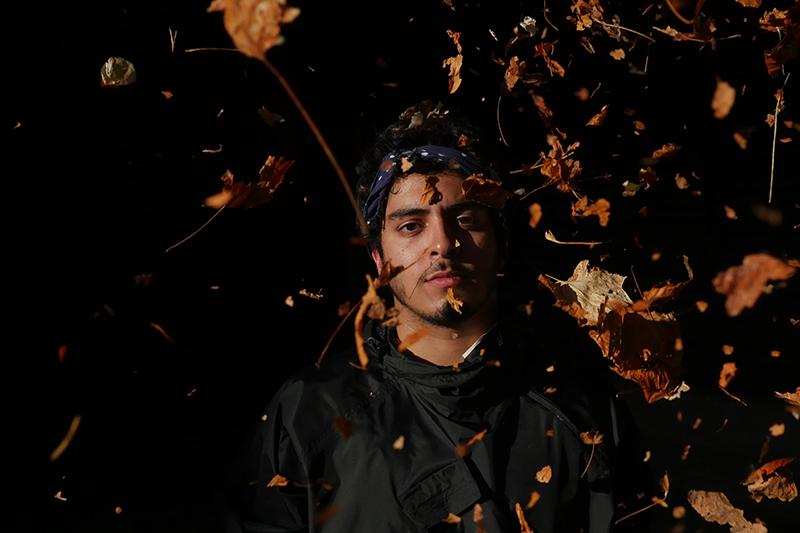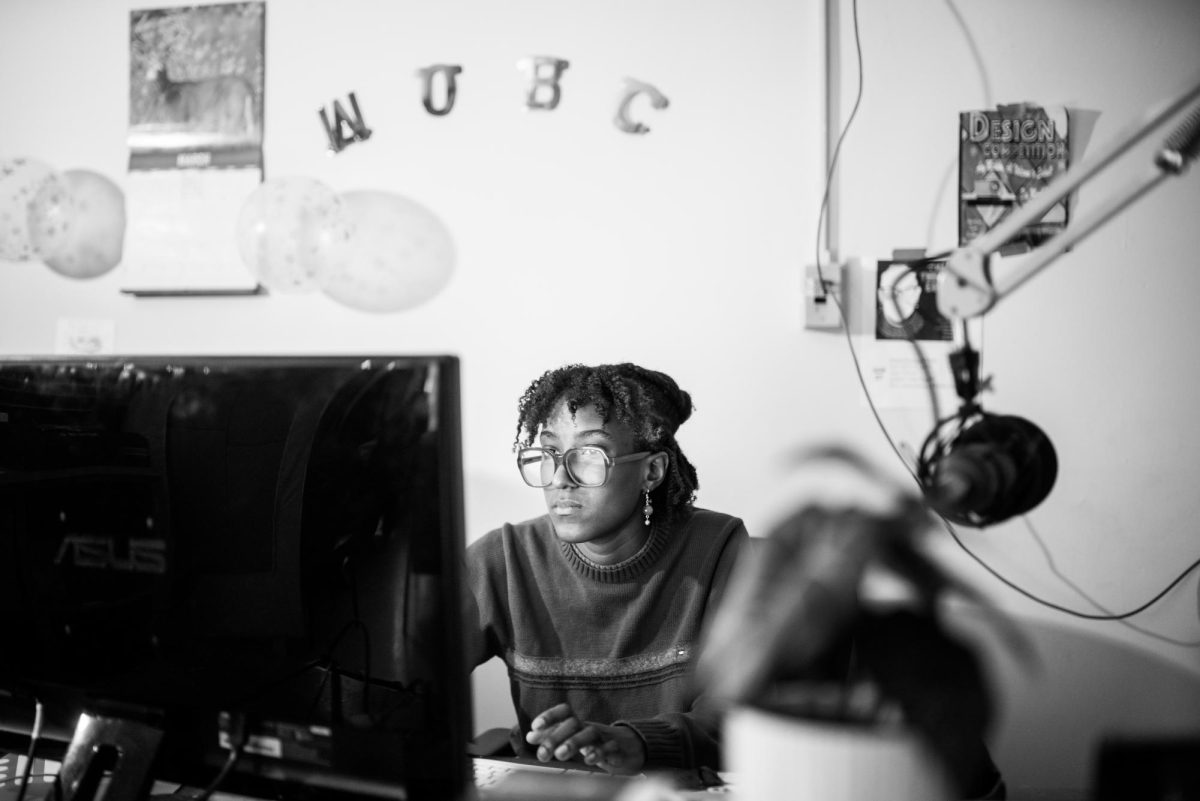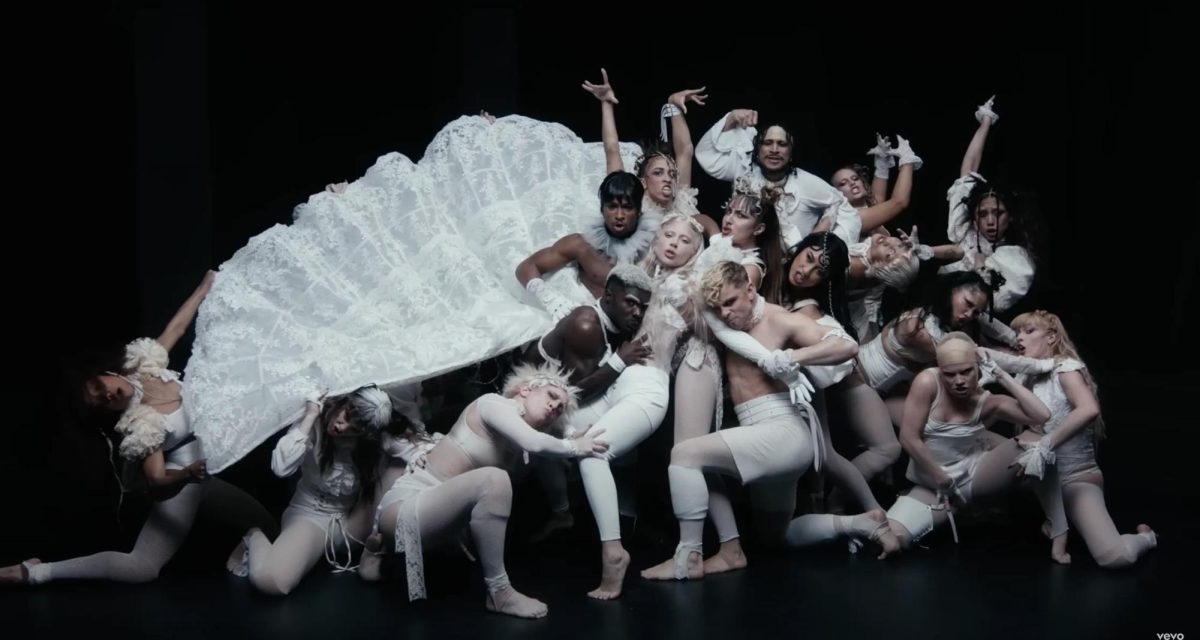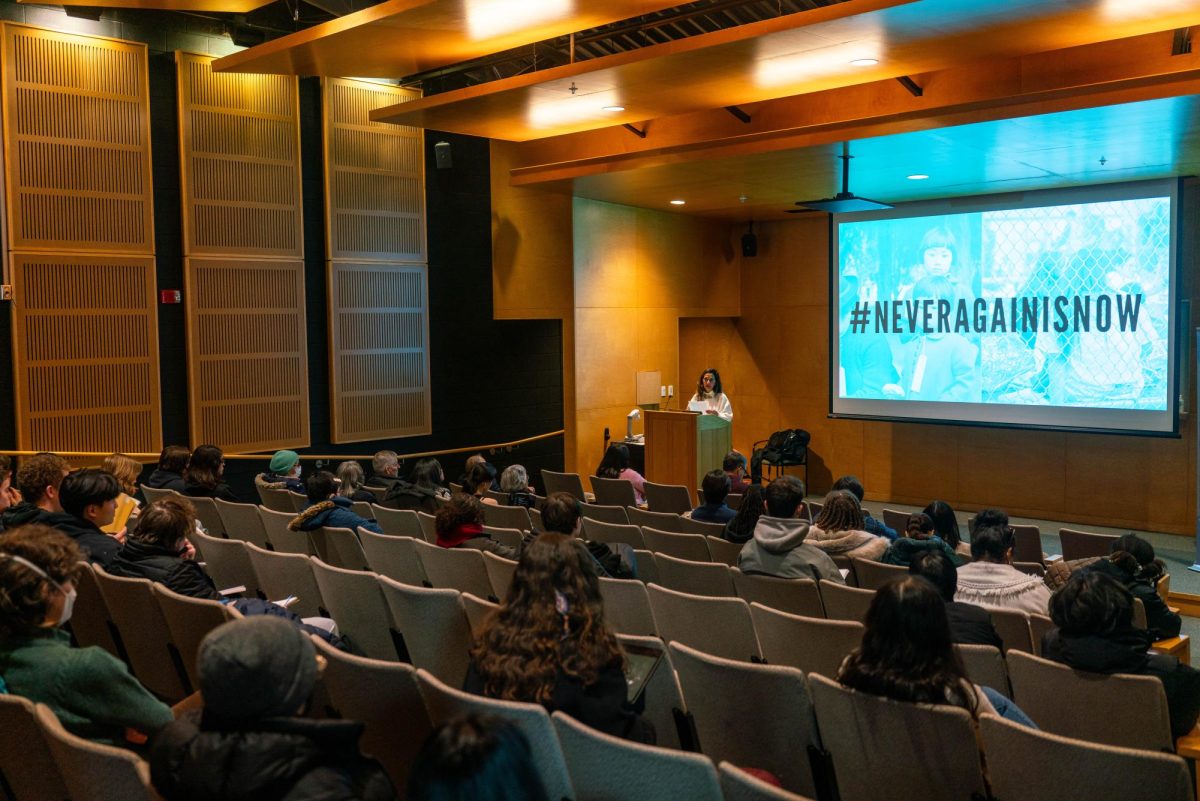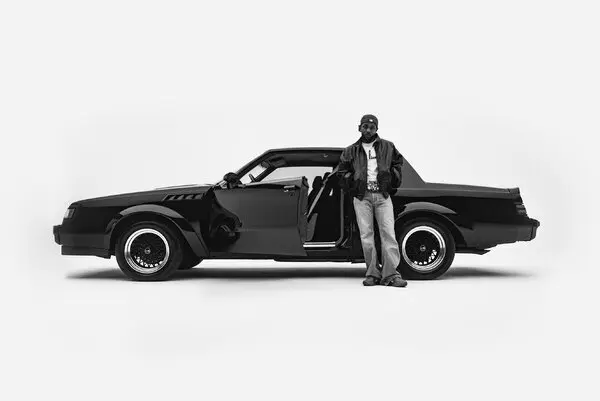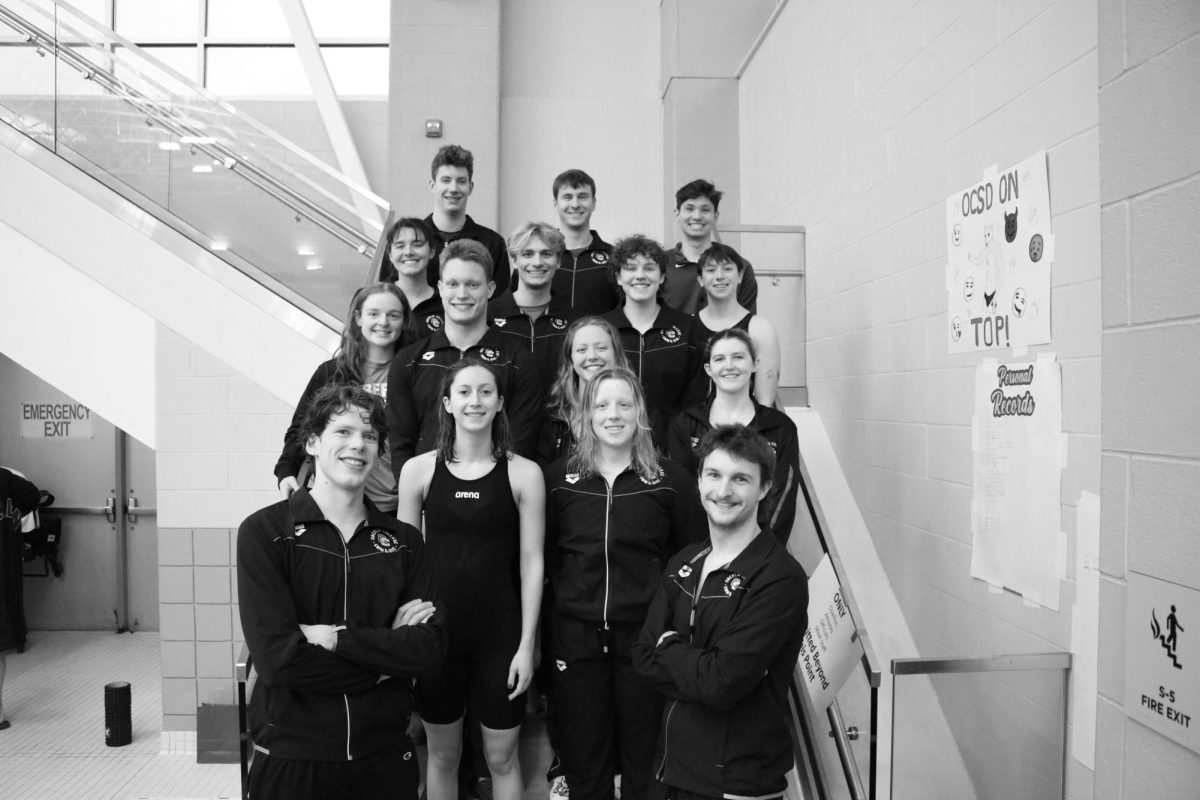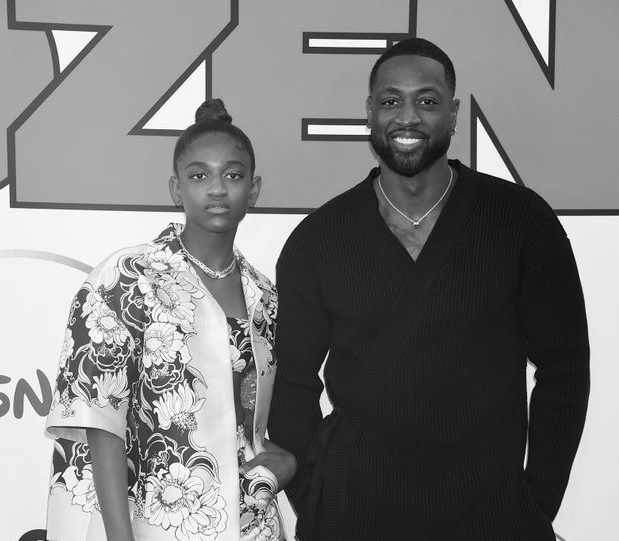Chakrabarti’s Beats Blend Kanye with GoldLink
College senior and hip-hop artist Robin Chakrabarti released his first album, ‘Introvert Party,’ in March. His songs are littered with lyrical contradictions that reflect Chakrabarti’s complex identity.
April 22, 2016
Editor’s note: This article contains language that may be offensive to some readers.
When College senior Robin Chakrabarti arrives at Azariah’s Café for our interview, he walks right past me. Dropping his backpack and coat in the booth next to mine, he settles in, pulling out his laptop and plugging in his headphones. He gets to work.
I turn around to face him, puzzled, and give him a little wave. “So either I can come over there, or you can come here,” I say above the sound of lattes being frothed. He looks up, chuckles to himself and apologizes. “Oh, hey, sorry. Yeah, why don’t you come here?”
Given how quickly Chakrabarti has been moving as of late, I can’t fault him for being unobservant. Over the past 18 months, he’s written and recorded Introvert Party, his full-length debut as Robin Chakra; he’s starred in a music video and has begun filming two more; he’s played a handful of local shows; and he’s a full-time student at Oberlin, finishing his Environmental Studies degree and making plans for millennial adulthood. He hasn’t had time to think much about his music since the album came out, he says.
You can tell from the way Chakrabarti sits — well, reclines — in the seat across from me that the speed of everything has worn him out a little. His jet-black hair is messy, and the Dr. Martens, grey pants and plain white tee he sports are clothes for comfort. However, his exhaustion also symbolizes triumph: Robin, an inspired introvert, has finally released a part of himself into the world.
–––
Introvert Party began with a lyric.
“I used to sip liquor like elixir till my liver get sicker / face faceless invasions with narrow arrows and no quiver,” Chakrabarti raps to me, much tamer than on record. The first lines of “Liquor Elixir,” a track about his dependence on alcohol, are heavy.
“I was sitting down, and I was writing just some stuff that came to my head,” he says. “It just started out like [that], and it turned into what eventually became ‘Liquor Elixir.’ That song is a reflection on my sophomore year, which was after I had come out of a very painful breakup. … I was very upset, very closed off, feeling broken and like I needed to prove myself.”
Chakrabarti had experimented with various elements of hip-hop. He dabbled in poetry — he’s named after Bengali poet Rabindranath Tagore — and the audio program Ableton but had never seen a project through. “The first beat I ever finished was the [‘Liquor Elixir’] beat,” he says. “And I was just telling myself, ‘I need to turn this into a song. I need to do something with it.’”
Chakrabarti tinkered with “Elixir” on and off for nearly seven months in 2014 and early 2015, experimenting with beats and adding layers as he gained confidence as a producer. With the single nearing completion, he made plans for a four-track EP. A full album was never in the cards, he says, until he was passed over for a prestigious internship for Winter Term 2015.
His confidence took a hit — “I didn’t feel like I was good enough to compete with other people around me,” he says — but Chakrabarti quickly decided to give Introvert Party his full attention. “I thought, ‘These other professional things I felt obligated to pursue, like résumé-builders, those aren’t happening. So I’m just gonna work on this,’” he says. After ecological work with the University of Washington and numerous apprenticeships, recording a hip-hop record in his bedroom felt a little like career suicide. “It almost felt like I had to ask myself permission to do that,” he says.
–––
Introvert Party’s only liner note reads, “This album was made after spending too much time alone in 2015.”I ask Chakrabarti how isolating the recording process really was. He raises his eyebrows. “I don’t know where you were in January 2015, but it was cold as fuck,” he says, laughing. “I was in my house in suburban Massachusetts, and … I spent all my time inside. I wasn’t really interacting with people outside of my family and my cats.”
Hence the album’s title, one of many contradictions littering the album and Chakrabarti’s character. There’s the persona of a self-described “sensitive” guy writing a pugnacious banger like “Fuckboys,” one of the album’s tracks. Among his dense conglomerations of rhymes and metaphors, there are lines like “I’m the fucking pacifist gladiator.”
Then there are the songs themselves, each addressing a different aspect of the rapper’s personality. “Controller” is his inner social media addict trying to unplug; “Like You,” a paean of non-commitment to a coital companion; “Are You Heaven,” about the debilitating fear of genuine emotions. Chakrabarti doesn’t sugar-coat his lyrics. There are just as many self-critiques as boasts on the album.
“That’s a really vulnerable place to be as an artist,” says double-degree senior Christy Rose, cinematographer for the “Liquor Elixir” video. “I had listened to [Introvert Party] in some earlier drafts last semester, and … there’s so much more than just beats and rapping. There’s all this development. I can hear a lot of things happening at the same time.”
Rose, who studies Cinema and TIMARA, worked with Chakrabarti, director and College junior Feride Akalin, a film crew and a team of dancers last April to shoot “LiquorElixir” in a single 14-hour day (“in an undisclosed location,” Chakrabarti says with a smile). The video sees Chakrabarti drenched in dirty water, writhing as he’s taunted by demonic shadows. For Rose, depicting the song’s dark themes on screen came with a lot of responsibility.
“[The song] is really intense, and there had to be a lot of trust,” she says. “But it’s been an awesome challenge for me to think, ‘How can we match [the music] visually?’ Because we are creating a persona that the world is going to see of Robin that’s not just listening to the album.”
One of Chakrabarti’s closest collaborators, Dan Babai, agrees that the songs’ emotional charge required an alteration in strategy. A childhood friend of Chakrabarti’s, Babai mixed and mastered the album while studying audio engineering in Spain. It was the first time he engineered a record he didn’t also produce, and he says he felt committed to bringing Chakrabarti’s words to the forefront.
“I did feel more involved than just the mix or as an engineer,” he says. “It definitely changed my approach to mixing because I had to cater much more to what the artist wants. Introvert Party is this dynamic, angry, emotive piece that really called for something ballsy, and I wanted the mix to mirror the lyrical content.”
Babai brought age and technical experience to the project, but for Chakrabarti, it was their history as friends that caused him to reach out. “Because of the amount of myself that I try to give to my art, it’s impossible for me to do that with someone I don’t feel comfortable with already,” Chakrabarti says. Babai agrees, emphasizing that collaborating across time zones required an enormous amount of trust between them.
“I think [working on the album] strengthened the relationship between us,” Babai says. “We’ll likely be better friends because of it. … This dude puts so much effort into every single detail, and [Introvert Party] wouldn’t have come out like it did if both of us didn’t absolutely love it.”
–––
Chakrabarti closes his notebook, but he doesn’t stop rattling off names: Kanye West, whose 808s & Heartbreak inspired him to “activate Kanye mode”; GoldLink — The God Complex is a favorite; Dylan Brady, an artist he found on SoundCloud. “And a lot of Death Grips,” he says. Before he obscures the page — with the title “Albums that were influential to me in 2015” scrawled across the top — I catch a glimpse of the rest. If there’s such a thing in hip-hop as being well-listened, Chakrabarti is it.
“The grandness that [West] goes for in his music was something that I was really striving for a lot,” he says. “And personally, I’m focusing toward making more successfully grand music. But also making sure I’m staying accessible … the degree of accessibility where people can still enjoy it and maybe dance to it, turn up to it, have sex to it, listen to it when they’re alone in their room. That whole range of things.”
Which is Chakrabarti’s way of saying he isn’t done creating. He’s got two videos in the works, with Rose behind the camera, and new tracks not far behind. I ask him, broadly, what’s in store after Oberlin. “Ah, the million dollar question!” he says, looking thoughtful. He pauses for a minute, then leans back with a satisfied grin: “To be determined.”


